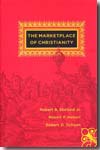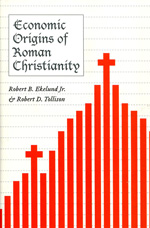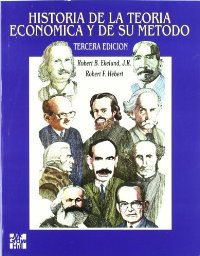The marketplace of christianity
- ISBN: 9780262050821
- Editorial: The MIT Press
- Fecha de la edición: 2006
- Lugar de la edición: Cambridge. Reino Unido
- Encuadernación: Cartoné
- Medidas: 24 cm
- Nº Pág.: 351
- Idiomas: Inglés

Economics can help us understand the evolution and development of religion, from the market penetration of the Reformation to an exploration of today's hot-button issues including evolution and gay marriage. This startingly original (and sure to be controversial) account of the evolution of Christianity shows that the economics of religion has little to do with counting the money in the collection basket and much to do with understanding the background of today's religious and political divisions. Since religion is a set of organized beliefs, and a church is an organized body of worshippers, it's natural to use a science that seeks to explain the behavior of organizations - economics - to understand the development of organized religion. "The Marketplace of Christianity" applies the tools of economic theory to illuminate the emergence of Protestantism in the sixteenth century and to examine contemporary religion-influenced issues, including evolution and gay marriage. The Protestant Reformation, the authors argue, can be seen as a successful penetration of a religious market dominated by a monopoly firm - the Catholic Church. "The Ninety-five Theses" nailed to the church door in Wittenberg by Martin Luther raised the level of competition within Christianity to a breaking point. The Counter- Reformation, the Catholic reaction, continued the competitive process, which came to include "product differentiation" in the form of doctrinal and organizational innovation. Economic theory shows us how Christianity evolved to satisfy the changing demands of consumers - worshippers. The authors of "The Marketplace of Christianity" avoid value judgments about religion. They take preferences for religion as given and analyze its observable effects on society and the individual. They provide the reader with clear and nontechnical background information on economics and the economics of religion before focusing on the Reformation and its aftermath. Their analysis of contemporary ho








